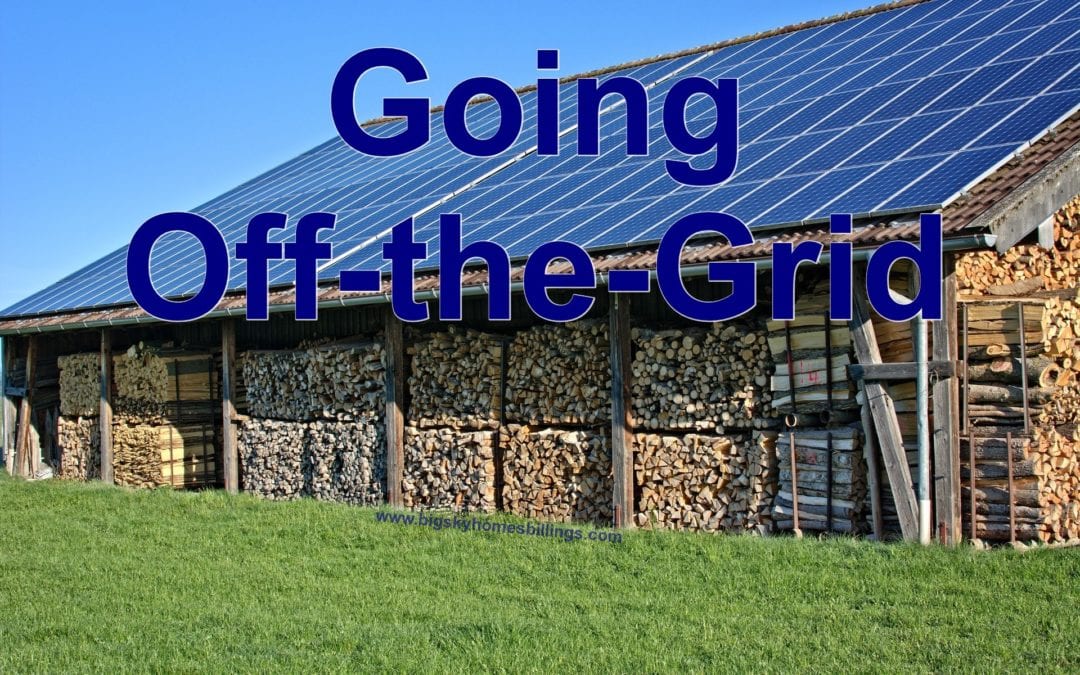Going off the Grid in a Modular Home
“The grid” is a term used to refer to the power grid: the interconnected system that produces and delivers electricity to consumers. Typically, a home has connections for electric power, natural gas, water, and telephone or cable lines. In this sense, when one talks about wanting to “go off the grid”, it means doing away with or disconnecting from all these public utilities and generating one’s own energy to achieve a self-sustaining lifestyle.
Going off the grid can either be partial or complete. Unless you are ready to dig your own well and use a cistern system for your water supply, it is generally more realistic to go partially off the grid. This would mean supplying your own electricity and living without a telephone line, in which case, the only utility bill you’ll be paying for is water. But if you want to go completely off the grid, then you better start digging so you can provide your own water supply and get rid of that water bill too. Big Sky Homes, your source for affordable homes in Billings, takes a closer look at what it really means to live off the grid.
Why go off the grid?
There’s a noble reason and there’s a practical one. For some, it’s a way to do their share in helping save the environment by reducing their carbon footprint. For a few they don’t live close enough to utilities to make it feasible. For still others, it’s a way to free themselves from the burden of having to perpetually pay for all those utility bills and show those big name power companies that there are other options and that it’s possible to survive without them. Yes, it is. But it will require considerable investment and some lifestyle changes.
Create your Own Power
Getting off the grid, whether it’s partial or complete, will necessarily mean cutting your reliance from your electric power provider. You can either use solar power, wind power, or a combination of both.
 Solar Power. Solar-powered homes typically have photovoltaic (PV) solar panels installed on the roof. As the sun’s rays hit the panels, energy is collected and electrons are knocked loose and become free-flowing. These electrons are then taken in by the electric field in the panels and are forced to flow in a single direction to generate direct current (DC). The DC passes through an inverter which converts it into alternating current (AC). And now you have your own power to use all around your home.
Solar Power. Solar-powered homes typically have photovoltaic (PV) solar panels installed on the roof. As the sun’s rays hit the panels, energy is collected and electrons are knocked loose and become free-flowing. These electrons are then taken in by the electric field in the panels and are forced to flow in a single direction to generate direct current (DC). The DC passes through an inverter which converts it into alternating current (AC). And now you have your own power to use all around your home.
Wind Power. During rainy and stormy days, wind turbines are a logical alternative to solar power. A residential wind turbine looks similar to the propeller of an airplane. It is ideally located on top of a tower (at least 50 feet high). As the wind blows, the blades move and spin a shaft that leads from the rotor to a generator. The energy produced by the spinning blades is absorbed by the generator and turned into electricity. Just like with solar panels, wind turbines make use of an inverter to convert direct current into alternating current that can be used to power up your electrical appliances when you need it. Otherwise, the energy generated will simply be stored in batteries for later use.
Create your Own Water Supply
There’s groundwater and there’s rain water. Both are good sources you can tap into on your way to getting off the grid.
To make use of groundwater, you’ll need a licensed well driller to drill deep into the ground and install a pump that will draw out the water. Depending on where you live in Billings water can be as shallow as 15 feet, or as deep as a couple hundred feet.

To make use of rainwater, you’ll need a cistern (a tank that holds water). Every time it rains, the water will flow from your rain gutters into your cistern where it is collected and pumped back into your home as needed. A cistern is only advisable if you live in an area where it regularly rains. Otherwise, a private well is the better option.
Go Off the Grid, Live a Greener Life
If you are seriously considering going off the grid, you will have to be ready for some lifestyle changes as well. You will probably have to be open to the idea of relocating too. And if you’re up for this, you might want to take it a step further by ditching life in a traditional stick-built home and embrace the idea of living in a more energy-efficient home, like a modular home.
Even when you are already generating your own power, it still makes sense to use it conservatively, especially if your primary reason to go off the grid is a greener life. Because it is usually the home’s heating and cooling systems which consume the most power, this should be an area of focus when talking about conserving electricity. And in this regard, opting to live in a modular home may be one of the best decisions you can make. Why? Modular homes are naturally energy-efficient because it is mandated by housing laws.
 Modular homes are made of sustainable materials and are better insulated than stick-built homes. By being able to keep your heating and cooling costs to a minimum, and choosing to switch to energy-efficient appliances such as Energy Star appliances, you’ll be able to enjoy maximum benefits from your self-generated energy and you’ll be well on your way to going off the grid and having a greener life.
Modular homes are made of sustainable materials and are better insulated than stick-built homes. By being able to keep your heating and cooling costs to a minimum, and choosing to switch to energy-efficient appliances such as Energy Star appliances, you’ll be able to enjoy maximum benefits from your self-generated energy and you’ll be well on your way to going off the grid and having a greener life.
Big Sky Homes has Green Homes
On your quest to be carbon neutral, your best bet is to get into an extremely efficient home. We have those homes! Our affordable homes in Billings, Montana are the perfect start to a greener lifestyle. Come see our lot (map below) and learn more about what sets our homes apart.
In the end you get a comfortable home, for a surprisingly low cost, and your utilities are reduced drastically. Call us at 406-256-0240 if you need more information.


